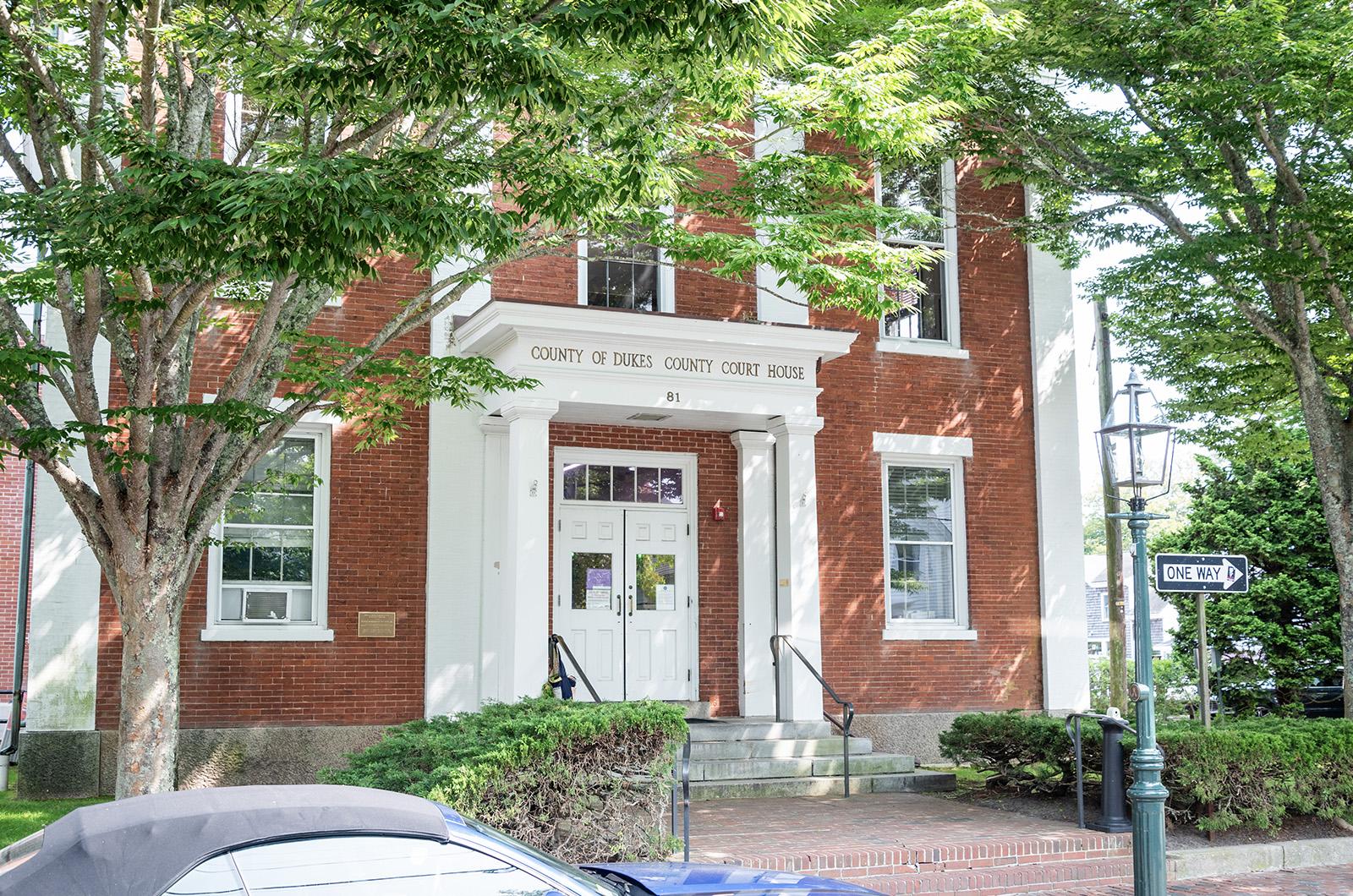A new recovery court for people dealing with substance abuse opened in Edgartown District Court earlier this year with the goal of addressing the underlying addiction that often drives people repeatedly into the criminal justice system.
Five people started in the new specialty court program this spring, and court officials, addiction specialists and law enforcement officers say it is already showing promise.
“When you address the core issue that brings someone before the criminal justice system, you have an opportunity to reduce recidivism,” said Robert Galibois, the Cape and Islands district attorney who helped set up the program. “Committing the crime is the result of a substance use disorder.”
The recovery court, sometimes referred to as drug court, meets on Wednesdays after the normal daily hearings and arraignments have taken place. Participation in the program is voluntary, and candidates are screened by clinical professionals after they have a criminal conviction or plea.
Island Health Care, Gosnold Behavioral Health and Martha’s Vineyard Community Services team up with the court probation department, Judge Benjamin Barnes, the district attorney’s office and defense attorneys to help participants find the best recovery plan for them.
Participants are in the program for 18 months, rising through several levels before a graduation ceremony.
Instead of the usual criminal sentence after a conviction, the court puts participants through a rigorous and tailored court-ordered recovery program. That can span from inpatient treatment and detox to counseling, said Kelly McCarron, a Martha’s Vineyard Community Services clinician who assesses candidates and helps find services, whether they be on- or off-Island.
“It’s to make their experience more specialized to them, as opposed to going through the normal process,” she said.
The weekly court sessions are much less formal than the average court hearing. Participants will talk about their week, how they are doing, work, housing and how to best resolve their particular issue.
“It’s more conversational,” said Cass Luskin, a defense attorney assigned to the court. “Everyone’s sitting in the same places, but I’m not wearing my tie.”
If a participant is not meeting their goals, or missing their meetings, they can face a range of sanctions, from community service, curfews and increased drug testing to jail time.
As participants rise through the system, their interactions with the court officials decrease until they graduate. Earlier this summer, four of the five participants in the Edgartown court moved to the second of four steps.
Jessica Haggerty, the Edgartown court’s assistant chief of probation, worked with recovery courts in the past when she was based in Suffolk County. She said graduates of the program often stick around, giving informal support to the next class.
“Each person that can get sober and get on the right path is only going to benefit everyone else,” Ms. Haggerty said. “It’s a community-based holistic approach to helping individuals.”
There are 32 other recovery courts set up around the state. Bruce McNamee, the Edgartown police chief, has experience with the Plymouth recovery court and said this would be helpful to meet the need on the Island.
“Plymouth was one of the earliest ones,” he said. “It almost ran like a 12-step program to a point . . . . It’s a pretty cool system. I think it’s got great legs for here.”
The Vineyard’s rate of binge drinking outpaces both the state and U.S., as does the rate of driving deaths involving alcohol. Overdose deaths on the Island have stayed steady for years and 48 people have died in the last 10 years.
The Vineyard House, a sober living facility on the Island, estimates that 75 per cent of people admitted to the Edgartown jail are there because of alcohol and drug abuse-related incidents.
Mr. Luskin said the criminal court system struggles to deal with cases that involved addiction, and having this specialty program to deal with those underlying causes is far overdue.
“It’s kind of a no-brainer,” Mr. Luskin said. “There’s a whole lot of good by being a little bit more compassionate.”







Comments (2)
Comments
Comment policy »